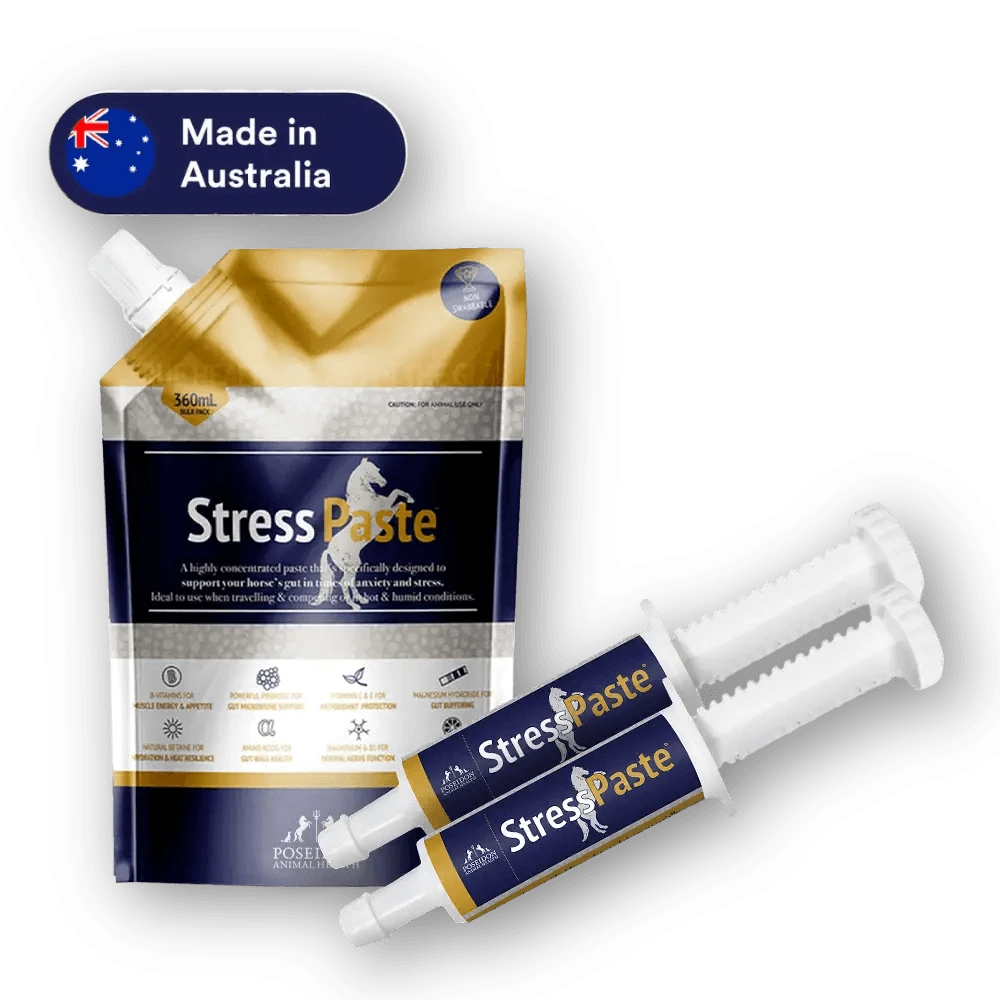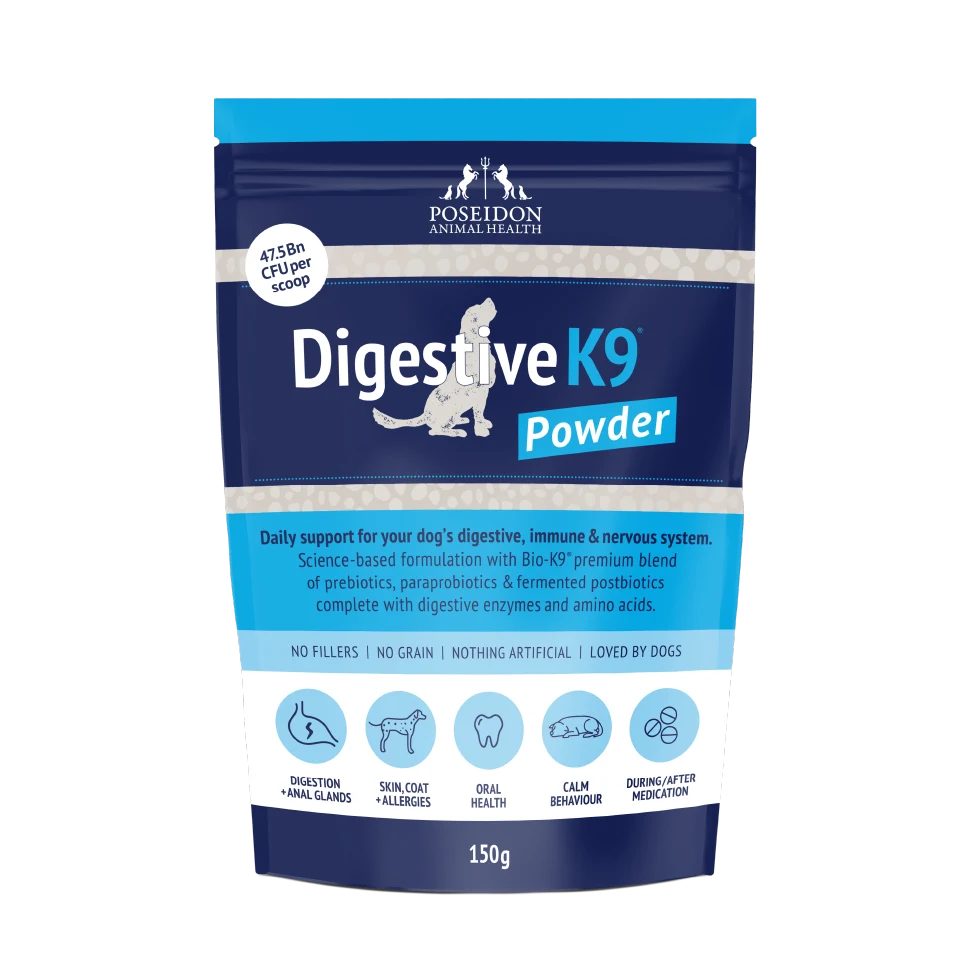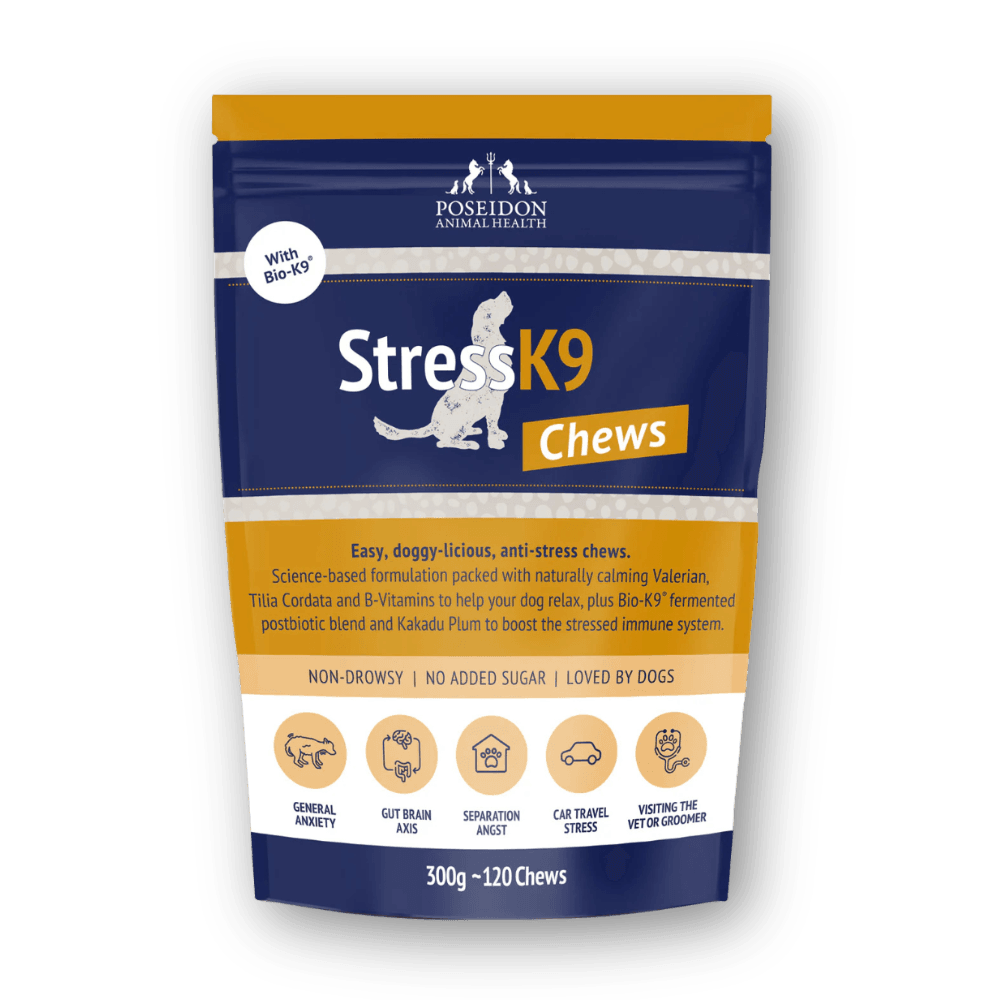
Scratching your head about pre, pro and postbiotics and the roles they play in equine gut health?
Whether you’re new to these terms, or you're familiar with the use of prebiotics, probiotics and postbiotics for horses, let’s examine their different roles in your horse's gut - which will help you identify the right gut supplement to effectively support your horse.
Prebiotics, Probiotics and Postbiotics for horses...
No, they’re not just different names for the same thing, and they all play different roles in the world of equine gut health.
Let's find out what they are, and what they do.
Prebiotics
The gut microbiome is made up of trillions of microorganisms called microbiota. These microbiota can be bacteria, viruses, and fungi. These microbiota are what allows the horse to break down and digest the fiber in their diet effectively.
A prebiotic is referring to food for the microorganisms in the horse's gut, which promotes the growth of beneficial microorganisms. These support the growth and development of "good microorganisms", or probiotics, during fermentation and allow the production of postbiotics. Prebiotics can also help control diarrhea and other gastro-intestinal upsets.
Probiotics
Probiotic refers to the live microorganisms like yeast or bacteria that are fed to potentially provide benefit to the horse. Probiotics can be indicated for use in the short term in acute cases of severe diarrhea or extended periods of anti-biotic use. Probiotics can be challenging to feed successfully as they need to remain alive through production, manufacturing, transport, and survive the extremely acidic conditions in the horse’s stomach. To produce a beneficial effect probiotics also need to be fed in extremely high numbers. The number of probiotics fed is measured in colony forming units (CFU), which indicate the number of viable cells. Generally this should be somewhere in the realm of 50 billion (10^9) up to 100 billion (10^11) cfu/g.
Probiotics can strengthen the gastrointestinal barrier against infection, lower cholesterol levels, block weight gain and have an anti-inflammatory effect, but they need to stay alive - during processing, transport to stores, on the shelf, and also in the acidic stomach environment - to reach the horse's hind gut. The amount of viable probiotics may decline before they can provide benefit to your horse, and this is why a product with 'equine probiotics’ might not be as effective as you’d hoped.
Postbiotics
In contrast, a postbiotic refers to a by-product of the fermentation done by probiotics. Postbiotics are generated when you take a live microorganism, put it in an environment it likes, feed it with specific prebiotics, and let it ferment. The result is all sorts of useful fermentation end-products and metabolites that help boost the immune system, reduce digestive symptoms such as diarrhea, help prevent obesity, reduce inflammation and improve the strength and integrity of the gut lining.
Essentially, a postbiotic is the outcome of the following formulation:
Prebiotic + Probiotic + Fermentation time = Postbiotic.
Feeding postbiotics improves the environment of the GI tract allowing the “good microorganisms” which ferment fiber for the horse to multiply and thrive. As these good microorganisms thrive and increase in numbers they reduce the ability of the “bad microorganisms” (which digest starch and sugar and produce lactic acid) to do the same.
Use your insights to choose the right equine supplements
Now that we’ve cleared up the differences, you can use this knowledge to make an informed decision about the gut health products you choose for your horse.
At Poseidon Animal Health, we’re committed to being informed by new and emerging research into the science of animal gut health. We use this research in the formulation of all of our equine supplements, and we want to empower horse owners and trainers so that they can make informed decisions about how they support their animal’s health foundations.
Our core Poseidon Animal Health products Digestive HP and Digestive EQ contain both a prebiotic and a postbiotic in a synergistic combination. It's also a key ingredient in Stress Paste, and a small amount is included in MetaboLize and Daily Balance.
As discussed earlier, prebiotics and postbiotics feed and improve the environment in the GI tract for the existing beneficial microorganisms. Current research shows that diversity and robustness of the microbiome are the most important factors in long term GI health and prebiotics and postbiotics are the best way to encourage a vibrant and resilient microbial community.
While some horses may benefit from a probiotic during a short period of illness or medication, there is still much research to be done on which strains benefit each individual horse and harm can be done by introducing the wrong strain.
Hot tip: If you do choose to introduce a live probiotic into your horse's diet, monitor them carefully. If the particular strain doesn’t agree with them you may observe bloating, gassiness, diarrhea and weight loss. If any of these signs occur, stop administering the probiotic and consult your veterinarian.
For long term foundational support we have chosen to include effective dosage levels of prebiotics and postbiotics in a synergistic combination to encourage the natural diversity of beneficial bacteria native to each individual horse.
Expect your equine supplement company to be open with you
If an equine gut supplement claims to have a probiotic, you should investigate the following:
- How effective it is, and what is its level of CFUs (viable colony-forming units) the entire shelf life of the product?
- What evidence there is that the probiotic does survive the acidic stomach and is it still alive when it reaches the horse's gut?
- Does the efficacy of the probiotic reduce during transport to the store and storage, and does the company test for this?
- Is the probiotic species-specific? Is there evidence to show that this particular strain works in tandem with the current indigenous microbiome that is native to horses?
Hot tip: If you do choose to introduce a live probiotic into your horse's diet, monitor them carefully. If the particular strain doesn’t agree with them you may observe bloating, gassiness, diarrhea and weight loss. If any of these signs occur, stop administering the probiotic and consult your veterinarian.
It is important to ask questions of the equine supplement companies you’re purchasing from. They should be able to share their evidence and approach with you openly and honestly, and if not, you’ll know they’re not the right choice for you.
If you’d like to know more about postbiotics and their role in our products, we’re always happy to chat. Get in touch via chat now, or email info@poseidonanimalhealth.com.au.






















